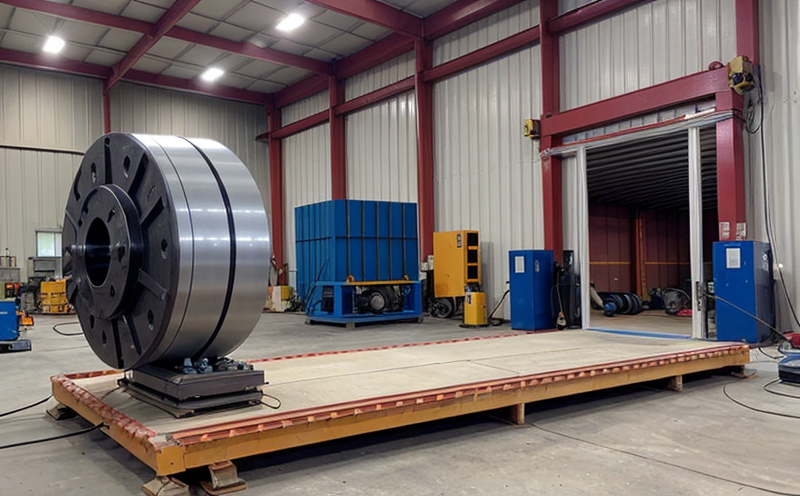EN 60068-2-64-4 Vibration Testing Standards
The EN 60068-2-64-4 standard is a part of the series designed to assess the environmental conditions that electrical and electronic products must withstand. This particular section focuses on the effects of vibration testing, ensuring durability under dynamic load conditions. Compliance with this standard guarantees that the product will function correctly even in harsh environments.
This test is essential for industries where equipment operates in vibrating conditions such as construction sites, heavy machinery, or transportation sectors. It ensures that products are robust enough to handle vibrations without affecting their performance or reliability. The testing procedure involves subjecting specimens to controlled vibration levels over specific durations and frequencies.
Key aspects of the test include:
- Vibration Levels: Specified in terms of amplitude, frequency, and duration.
- Type of Vibration: Typically sinusoidal or random.
- Specimen Preparation: Ensuring specimens are representative of the final product to be tested.
- Instrumentation: High-precision accelerometers, vibration analyzers, and data loggers.
- Data Collection: Continuous monitoring of specimen response throughout the test period.
The results help manufacturers identify potential weaknesses in design or materials that could lead to premature failures. Compliance with these standards is crucial for maintaining product quality and ensuring safety in various environments.
| Standard | Vibration Type | Amplitude Range (m/s²) | Frequency Range (Hz) |
|---|---|---|---|
| EN 60068-2-64-4 | Sinusoidal & Random | 0.1 to 75 m/s² | 10 Hz to 2000 Hz |
Applied Standards
The EN 60068-2-64-4 standard is widely applicable across various sectors, particularly in industries where equipment experiences significant vibration exposure. This includes construction machinery, transportation systems, and industrial automation.
| Vibration Type | Industry Sector | Application Example |
|---|---|---|
| Sinusoidal Vibration | Heavy Machinery | Crane controls in ports and harbors. |
| Random Vibration | Aerospace | Avionics systems for aircraft. |
The standard's applicability extends beyond these sectors to include any product that might encounter significant vibration during its operational life. Compliance ensures products meet the required durability standards, enhancing overall reliability and safety.
Benefits
Compliance with EN 60068-2-64-4 brings numerous benefits to manufacturers:
- Enhanced Durability: Ensures products can withstand the rigors of real-world conditions, extending product life.
- Better Safety: Reduces the risk of failures leading to accidents or malfunctions.
- Improved Reputation: Demonstrates commitment to quality and safety standards, boosting brand image.
- Compliance with Regulations: Ensures adherence to international regulations promoting global market access.
- Cost Savings: Reduces warranty claims by identifying potential issues early in the development process.
- Competitive Advantage: Differentiates products from competitors, enhancing market competitiveness.
These benefits translate into increased customer satisfaction and long-term business success. Compliance with this standard is a strategic investment in product quality and reliability.
Why Choose This Test
Selecting the EN 60068-2-64-4 vibration testing service offers several advantages:
- Expertise and Experience: Our team of seasoned professionals ensures accurate and reliable test results.
- State-of-the-Art Facilities: Equipped with the latest instrumentation for precise measurements.
- Comprehensive Reporting: Detailed reports provide actionable insights into product performance.
- Custom Solutions: Tailored testing plans to meet specific client requirements.
- Quick Turnaround Times
We pride ourselves on providing a seamless and efficient service, ensuring that your products are tested according to the highest standards. Our commitment to quality guarantees accurate results and reliable outcomes.





